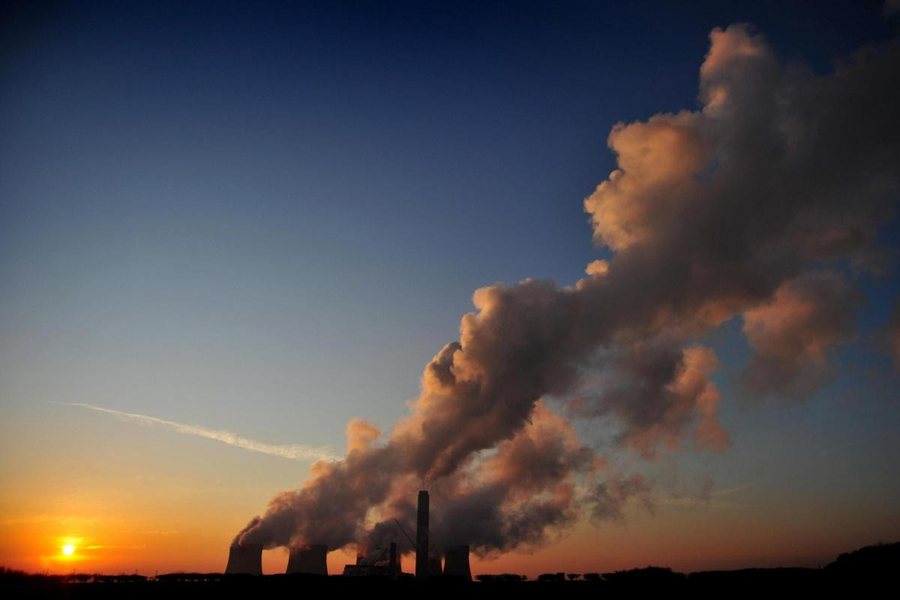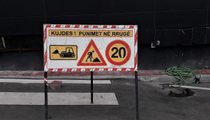Businesses, obligations for greenhouse gas emissions - Monitoring, according to the European system. Additional costs for industry

The proposed amendments to the Climate Change Law impose clear legal obligations on companies that produce, transport or use fuels, as well as other sectors, such as aviation or maritime transport. According to the draft law submitted to the Assembly, these entities will be obliged to accurately monitor and report greenhouse gas emissions, while the reports will be verified by accredited auditors and submitted to the National Environment Agency.
The changes affect a wide range of industrial activities with high greenhouse gas emissions, some of which were already required to monitor their emissions, but this process will now be carried out through the MRVA (Monitoring, Reporting, Verification and Accreditation) system, in accordance with European Union standards.
The list includes sectors such as: Combustion of fuels in installations over 20 MW, production of coke, steel, aluminum and other metals, production of cement clinker, lime, glass, ceramic products and insulating materials, wood processing, production of paper, tar and a range of industrial chemicals such as nitric acid, ammonia and hydrogen, etc.
In the first phase, during the period 2025–2027, full obligations will apply only to industrial installations with high emissions and to the aviation sector. For maritime transport and fuel wholesalers, there will only be costs for the development of monitoring plans until 2028, while full obligations will enter into force from January of that year.
According to the report accompanying the draft law, the new obligations will also have costs for entities. Thus, for monitoring and reporting, companies will need to hire or train a technical employee at a cost of 1.3-1.5 million lek per year. Meanwhile, for verification and auditing by an accredited verifier, the costs range from 1-3 million lek per year, depending on the complexity of the activity.
The changes aim to increase the transparency and accuracy of emissions data, ensuring that Albania meets national and international obligations for greenhouse gas reduction and approximation with EU legislation.

Fires intensify in the country/MM: 50 fires in the last 24 hours, 19 still active!
The Ministry of Defense announced today that 50 fires have been identified in the last 24 hours, 19 of which still remain active. The active foci are: ·......

About 65% of domestic debt is held by banks - Most of it is in bonds. The ratio to GDP is also falling
Domestic debt has reached record levels this year. According to the Ministry of Finance's statistical bulletin, this stock is estimated to have reached 798......

How are fires affected by climate change? - Europe, the continent most at risk from rising temperatures
Wildfires have swept across the Mediterranean this month, forcing thousands of people in Spain's Catalonia region into lockdown and threatening France's......

Doing business in Albania? Procedures are simplified - Law changes/ Online registration for foreign investors and emigrants
Foreign investors or Albanian emigrants around the world who wish to invest in their homeland will now find it easier to do so solely through the......

General fluctuations in the foreign exchange market – Dollar and Pound strengthen. Fall for Franc and Euro!
The US dollar has registered an increase in value this morning, recovering points from the continuous decline it suffered last week, as it was bought today......

Minimum wages in Europe - Which countries have the highest salaries? Luxembourg leads with 2,704 euros
Millions of workers in the European Union continue to receive minimum wages, which are intended to provide a basic standard of living, although they have......

New energy project connects Crete to the mainland - Interconnection aims to provide electricity supply for the Mediterranean region
A major undersea power cable project has successfully connected the island of Crete to the electricity grid of mainland Greece, marking a transformative......

EU, unprotected from cyber attacks? - Eight EU countries still lack regulations for critical sectors
Bulgaria, France, Ireland, Luxembourg, the Netherlands, Portugal, Spain and Sweden have not yet adopted cybersecurity rules for critical sectors, almost a......


















